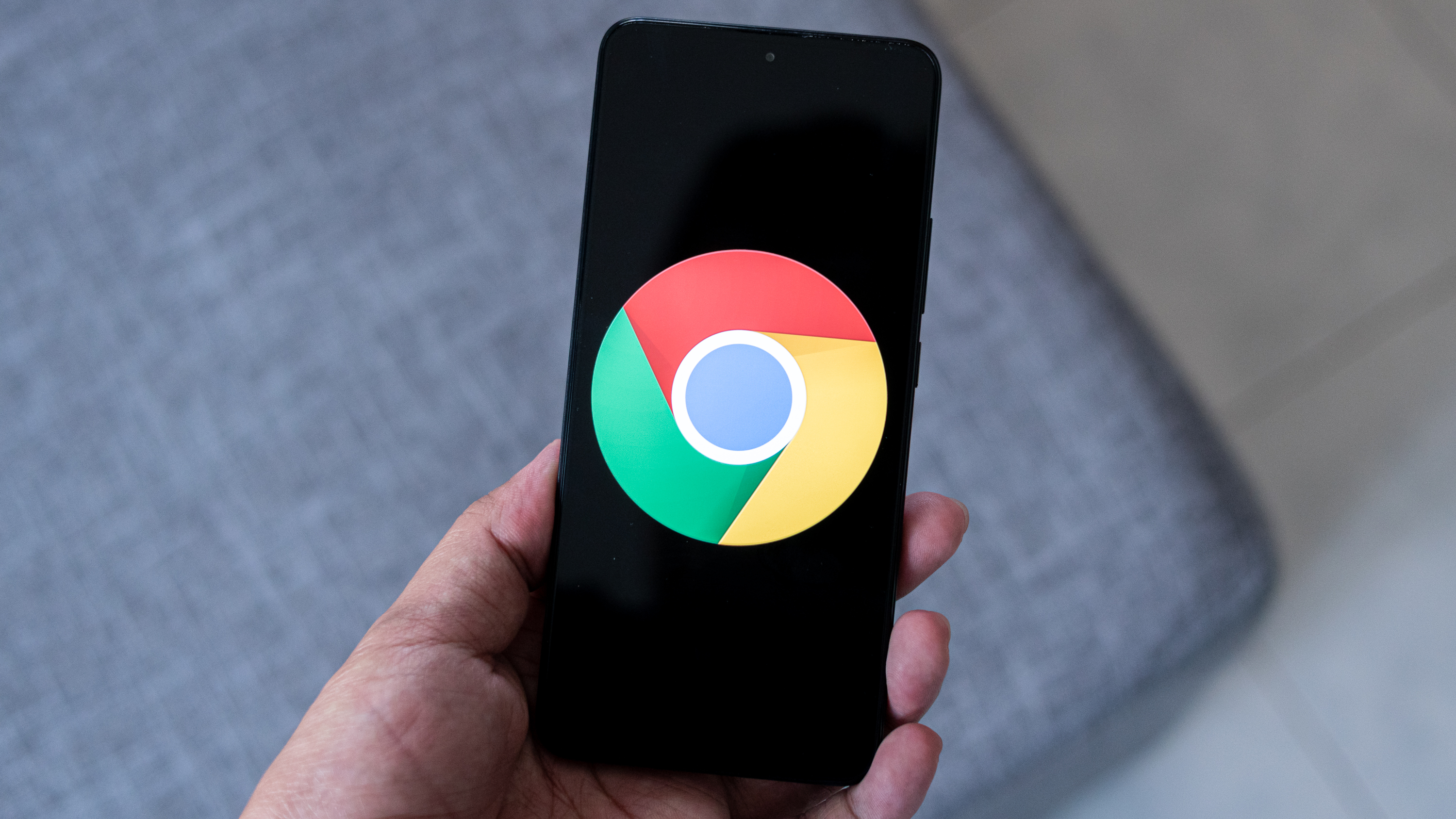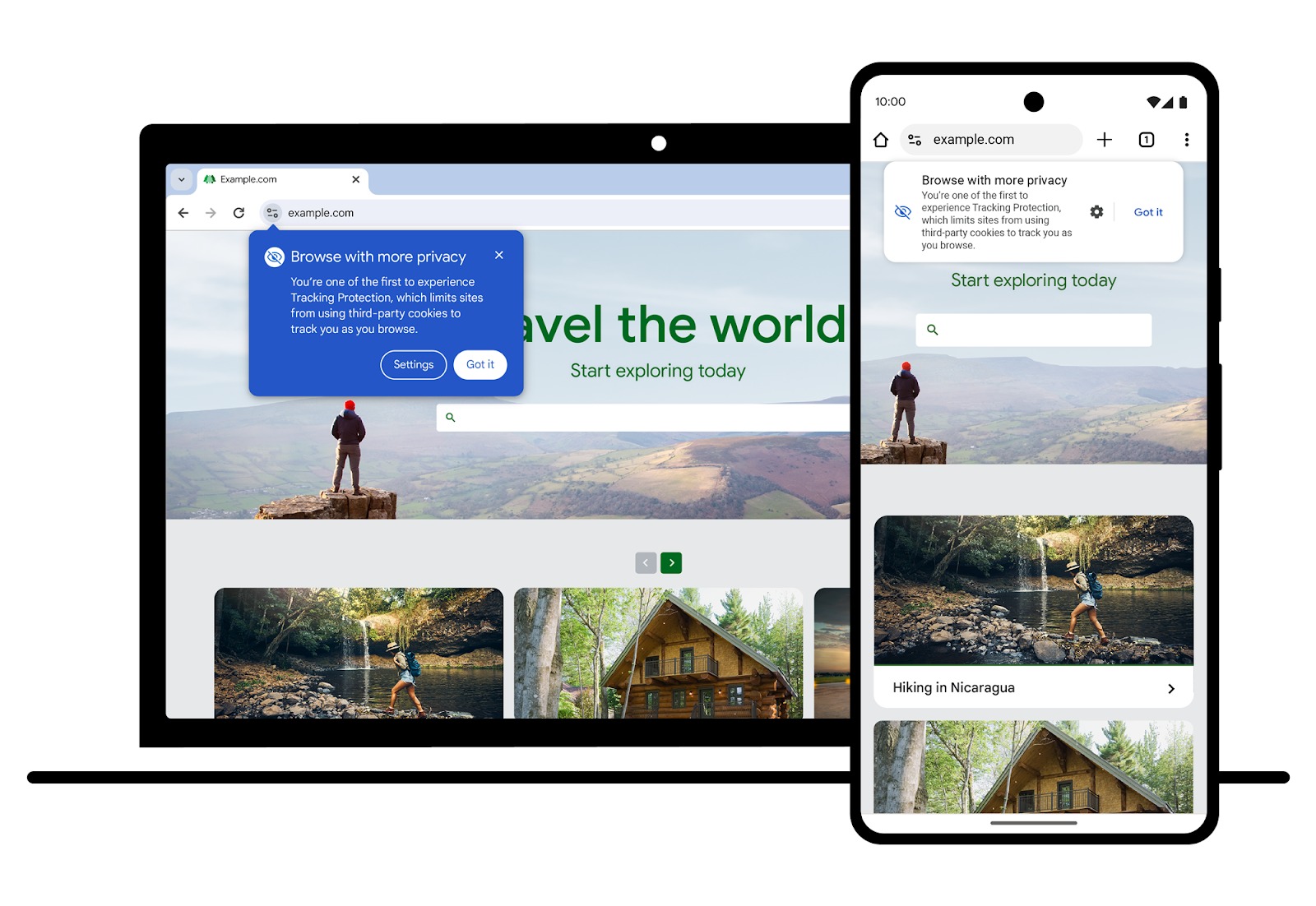Google Chrome to test restricting third-party cookies soon before ditching them for good
Google's testing the cookie apocalypse on 1% of Chrome users early next year.

What you need to know
- Google is dipping its toes into the cookie-less future with a 1% test group starting January 4.
- The Tracking Protection test is part of Google's Privacy Sandbox initiative to ditch third-party cookies for everyone by the second half of 2024, assuming the UK's Competition and Markets Authority approves it.
- If you're lucky enough to be picked for Google's trial, you'll receive a notification when you open Chrome on desktop or Android.
Google is still on track to kick third-party cookies to the curb in Chrome starting in 2024, and the next step is to restrict those trackers to a small set of users on January 4.
This limitation marks Google's first punch in the fight against third-party cookies, according to the company's blog post. In Q1 2024, it'll test the waters by default-blocking those cookies for 1% of Google Chrome users. If you're randomly chosen for the test, a notification will pop up when you open Chrome on desktop or Android.
If you're on a site that doesn't work without third-party cookies, Chrome's got your back. If the browser senses you're stuck in a refresh loop, it'll give you the option to temporarily switch third-party cookies back on.

If all goes well, by Q3 2024, it's a gradual goodbye to third-party cookies for everyone, though it depends on Google's consultation with the UK's Competition and Markets Authority (CMA).
Google built its own alternative to third-party cookies, called "privacy sandbox." Instead of stalking you site by site, it does some on-device processing to figure out your interests. Google then shares that information with advertisers so they can hit you up with ads that tickle your fancy without snooping on your entire browsing history.
Since 2020, the search giant has been talking about this grand scheme for Chrome to shut down those nosy cookies that track you across the web. Google claimed that it would make the full transition within two years.
Three years down the line, Google's plan to swap out third-party cookies with something called Federated Learning of Cohorts hasn't quite taken off. Competitors and regulators are all up in arms over concerns that this move might give Google an unfair advertising edge.
Get the latest news from Android Central, your trusted companion in the world of Android
Google put off its plan twice due to the CMA flagging its privacy sandbox, with regulators suggesting that it might be a tad too much power for Google in the online ad business. As a result, the Mountain View-based company has teamed up with the CMA to tweak the privacy sandbox and address antitrust concerns.
Meanwhile, other web browsers like Firefox and Safari have been blocking third-party cookies, which are notorious for shadowing your every move online.

Jay Bonggolto always keeps a nose for news. He has been writing about consumer tech and apps for as long as he can remember, and he has used a variety of Android phones since falling in love with Jelly Bean. Send him a direct message via X or LinkedIn.
